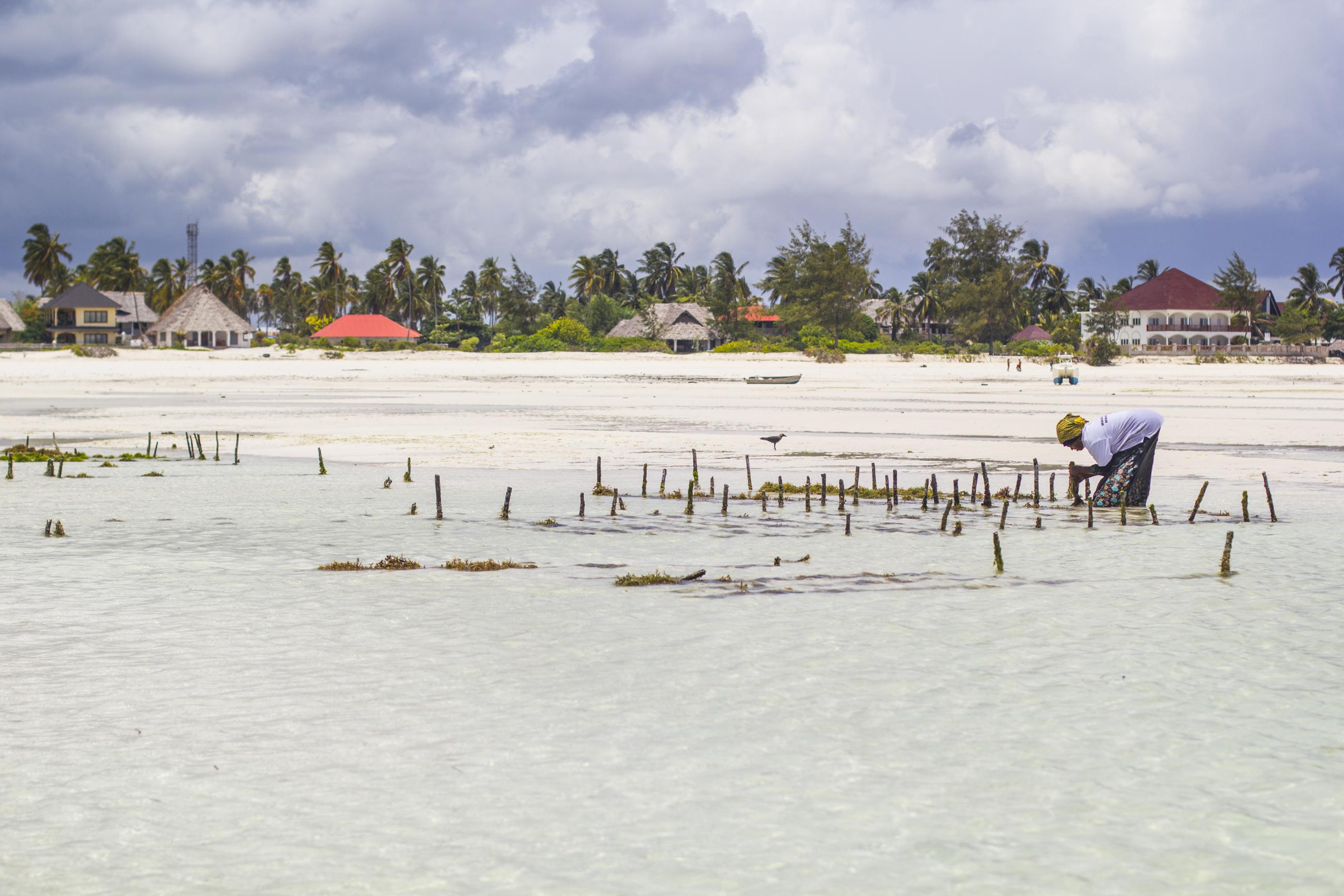Empowering women in just transitions: Insights from the GLOW programme (Eng, Fr, Sp)

This report summarises learning from GLOW on common challenges and promising solutions for advancing women’s empowerment in low-carbon transitions. Download the report Empowering women in just transitions: Insights from the GLOW programme.
Net zero emissions development is the frame for global development, our futures depend on it. The world needs to be on a trajectory to net zero carbon emissions by mid-century to meet the 1.5oC temperature goal of the Paris Agreement, but is far off track.
Meanwhile, progressing gender equality is a human right and is more pressing than ever. The Covid-19 pandemic set back progress on gender equality – driving a deeper development gap between women and men.* While this setback has been largely recovered, headway on gender equality in economic participation and opportunity, education, health, survival, and political empowerment has barely edged forward, on global average, in the past two decades.
For social justice, as well as for environmental and economic sustainability reasons, action on gender equality and climate change must both accelerate massively. The goals are synergistic. Pursuing them intentionally in tandem will achieve more than a narrow focus on either gender equality or climate change alone.
The Gender Equality in a Low Carbon World (GLOW) programme is an action research programme, 2021-24, which investigates opportunities for women’s economic empowerment in low-carbon transitions across 12 projects in 17 countries. Its projects target the land use sectors (agriculture, agroforestry and forestry), the blue economy and eco-tourism. Elements of the programme look at the application of biocircular economy principles to reuse organic wastes, reduce emissions and enhance livelihoods. This report summarises learning from GLOW on common challenges and promising solutions for advancing women’s empowerment in the transitions in these sectors.
GLOW projects identified and pursued four main routes for empowering women while driving mitigation and adaptation in the natural resource-based sectors:
- Making women’s existing economic activities more productive and climate-smart (especially highly economically- and climate-vulnerable work such as smallholder farming).
- Helping women enter male-dominated activities while also climate mainstreaming those activities and sectors.
- Supporting women to consolidate business models for their existing low-carbon and climate-resilient economic activities.
- Supporting women to access completely new low-carbon, climate-resilient jobs that employ emergent technologies and production systems.
From these four main routes to low-carbon transition and women’s economic empowerment, we identified the following main findings:
- In the natural resource-based sectors where GLOW is focused, it is not easy, practical, nor desirable to separate the ‘low-carbon’ from the ‘climate-resilient’; climate risk reduction must be fully integrated.
- Climate action must be rights-based and locally appropriate.
- Climate initiatives can address and reduce discriminatory barriers for women, with positive spillover benefits into other areas of women’s lives.
- Women’s contributions matter: their access to emergent low-carbon, climate-resilient technologies drives innovation and learning; while women’s increased involvement in promotion and marketing of accelerates uptake of low-carbon technologies and practices.
- Some groups of women are guardians of knowledge and practices that are inherently low-carbon, climate-resilient and ecologically sustainable.
- There are many well-established measures of good ‘gender and development practice’ that apply equally to, or can be adapted for, low-carbon, climate-resilient development initiatives.
The report contains detailed, practical and actionable recommendations, which are clustered in the following dimensions:
- Address women’s under-representation in public policy-making and collective decision-making by increasing the representation of women and boosting their capabilities to fulfil these roles.
- Increase women’s uptake of decent, low-carbon, climate-resilient jobs, including by mapping the gaps and potentials for women’s participation, making alliances with power-holders to increase women’s influence and sphere of activity; and encouraging gender champions, role models and mentors.
- Increase women’s access to productive assets for low-carbon, climate-resilient economic transitions, including by supporting collective actions by women to increase green business activity and exploring how emergent low-carbon, climate-resilient technologies and new production modes may be particularly suitable for women workers and entrepreneurs.
- Increase women’s access to markets for sustainably-produced goods and services, including by leveraging the potential for women’s use of information and communication technologies (ICT).
- Capitalise on many women’s high degree of initiative, but ensure that the most marginalised women are not left behind, including by tailoring capacity development to specific groups of women; and designing and implementing social protection supports for the poorest and most heavily disadvantaged women.
- Strengthen enabling policies and their implementation, including by strengthening the gender and social equity dimensions of climate policies and of relevant sectoral and economic policies (such as land restoration, environmental protection, fisheries and maritime policies); getting funding into the hands of women's groups and women entrepreneurs; strengthening the gender capacity of local government personnel.
- Address unpaid and heavily underpaid work as an intrinsic part of climate action.
In each country, these recommendations apply to governments’ strategies and plans for ‘just transitions,’ which may include preferential investment for entirely new sectors and industries. The recommendations are also highly relevant to international dialogues and negotiations on just transitions in the UNFCCC and elsewhere.
Action across the above dimensions will deliver the climate and gender justice we want to see in the world. People currently left behind in economically vulnerable, climate-vulnerable, low-productivity and insecure jobs will have decent work and new leadership opportunities that raise their capabilities and well-being. Women will be equally co-leading and benefiting from transitions to a net-zero, climate-resilient future.
Read the report: Empowering women in just transitions: Insights from the GLOW programme
Watch the animation with English, French or Spanish subtitles
*We recognise that gender is a spectrum, encompassing people with diverse sexual orientations, gender identities and expressions, and sex characteristics (SOGIESC). This report and the research on which it is based has focused particularly on relations between women and men.

